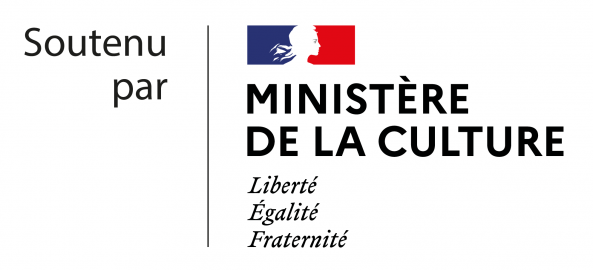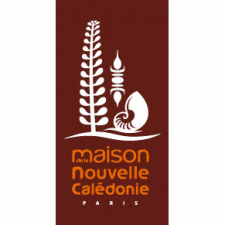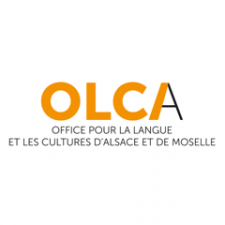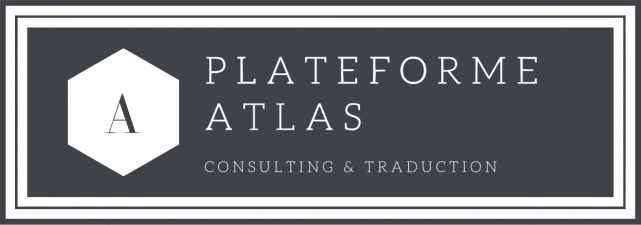LinguaLibre
Difference between revisions of "About/de"
(Created page with "Lingua Libre entstand aus der Beobachtung verschiedener Mängel bei Wikimedia-Projekten und dem Internet im Allgemeinen:") |
(Created page with "* Mangelnde Vielfalt: Zwar steht das Internet theoretisch allen Menschen offen, doch sind in seinen Inhalten bei weitem nicht alle Sprachen proportional vertreten. Mehr als 50...") |
||
| Line 64: | Line 64: | ||
Lingua Libre entstand aus der Beobachtung verschiedener Mängel bei Wikimedia-Projekten und dem Internet im Allgemeinen: | Lingua Libre entstand aus der Beobachtung verschiedener Mängel bei Wikimedia-Projekten und dem Internet im Allgemeinen: | ||
| − | * | + | * Mangelnde Vielfalt: Zwar steht das Internet theoretisch allen Menschen offen, doch sind in seinen Inhalten bei weitem nicht alle Sprachen proportional vertreten. Mehr als 50 % der Websites sind in englischer Sprache; nur 301 der mehr als 7000 Sprachen der Welt verfügen über eine freie Enzyklopädie <sup>[https://w3techs.com/technologies/overview/content_language/all <nowiki>[1]</nowiki>]</sup>, deren Inhalt qualitativ und quantitativ hinter dem der besser ausgestatteten Sprachen wie Wikipedia in englischer Sprache<sup>[https://w3techs.com/technologies/overview/content_language/all <nowiki>[1]</nowiki>],[https://athenaeum.libs.uga.edu/handle/10724/37877 <nowiki>[2]</nowiki>]</sup> zurückbleibt. Darüber hinaus bieten diese Websites Inhalte, die im Wesentlichen westliche Standards und Bedürfnisse widerspiegeln und durch das Medium des geschriebenen Wortes erfüllt werden, was ihren Mangel an sprachlicher Vielfalt erklärt und aufrechterhält. |
* Lack of orality: Although languages are essentially spoken (only 4,000 of the world's 7,000 languages have a writing system)<sup>[https://www.ethnologue.com/enterprise-faq/how-many-languages-world-are-unwritten-0 <nowiki>[4]</nowiki>]</sup>, knowledge sharing and communication via new information and communication technologies (NICTs) is mainly done in writing, particularly on the web, despite the rich multimedia format it allows. This mediation of the oral through the written word raises many barriers to contribution, such as the use of Unicode characters, the culture of the written word, the orthographic standardisation of the language or the literacy rate of the community. | * Lack of orality: Although languages are essentially spoken (only 4,000 of the world's 7,000 languages have a writing system)<sup>[https://www.ethnologue.com/enterprise-faq/how-many-languages-world-are-unwritten-0 <nowiki>[4]</nowiki>]</sup>, knowledge sharing and communication via new information and communication technologies (NICTs) is mainly done in writing, particularly on the web, despite the rich multimedia format it allows. This mediation of the oral through the written word raises many barriers to contribution, such as the use of Unicode characters, the culture of the written word, the orthographic standardisation of the language or the literacy rate of the community. | ||
Revision as of 17:21, 24 August 2021
Lingua Libre ist ein Projekt des Vereins Wikimédia France, das den Aufbau eines kollaborativen, mehrsprachigen, audiovisuellen Korpus unter freier Lizenz zum Ziel hat:
- Erweiterung des Wissens über Sprachen und in Sprachen auf audiovisuelle Weise im Web, in Wikimedia-Projekten und außerhalb ;
- Die Entwicklung von online-Sprachgemeinschaften unterstützen - insbesondere die von schlecht ausgestatteten, Minderheiten-, regionalen, mündlichen oder gebärdeten Sprachen -, um den Gemeinschaften den Zugang zu Online-Informationen zu erleichtern und die Vitalität der Sprachen dieser Gemeinschaften zu sichern.
Wie kann ich teilnehmen?
Sie können Lingua Libre nutzen, indem Sie Aufnahmen erkunden und wiederverwenden, zum Korpus beitragen, indem Sie Wörter aufnehmen, oder die Website selbst in Absprache mit der Community verbessern.
Die Registerkarte Aufnahme-Assistent ermöglicht es, kurze Audios (1 Wort, 1 Satz) aufzunehmen, sie zu kategorisieren und auf Wikimedia Commons von einem Computer oder Smartphone aus zu veröffentlichen. Dazu müssen Sie sich anmelden oder ein Benutzerkonto erstellen. Das Benutzerhandbuch ist auf der Hilfeseite verfügbar.
Um die Seiten der Website zu ändern, loggen Sie sich einfach ein und klicken Sie auf Ändern. Um weitere Seiten hinzuzufügen, gehen Sie in zwei Schritten vor: Geben Sie den Titel der Seite, die Sie erstellen möchten, in die Suchmaschine ein, mit dem Präfix "LinguaLibre:". Es erscheint eine Meldung, die Sie auffordert, die Seite zu erstellen. Für jede größere Änderung konsultieren Sie bitte vorher die Gemeinschaft.
Warum teilnehmen?
Lingua Libre entstand aus der Beobachtung verschiedener Mängel bei Wikimedia-Projekten und dem Internet im Allgemeinen:
- Mangelnde Vielfalt: Zwar steht das Internet theoretisch allen Menschen offen, doch sind in seinen Inhalten bei weitem nicht alle Sprachen proportional vertreten. Mehr als 50 % der Websites sind in englischer Sprache; nur 301 der mehr als 7000 Sprachen der Welt verfügen über eine freie Enzyklopädie [1], deren Inhalt qualitativ und quantitativ hinter dem der besser ausgestatteten Sprachen wie Wikipedia in englischer Sprache[1],[2] zurückbleibt. Darüber hinaus bieten diese Websites Inhalte, die im Wesentlichen westliche Standards und Bedürfnisse widerspiegeln und durch das Medium des geschriebenen Wortes erfüllt werden, was ihren Mangel an sprachlicher Vielfalt erklärt und aufrechterhält.
- Lack of orality: Although languages are essentially spoken (only 4,000 of the world's 7,000 languages have a writing system)[4], knowledge sharing and communication via new information and communication technologies (NICTs) is mainly done in writing, particularly on the web, despite the rich multimedia format it allows. This mediation of the oral through the written word raises many barriers to contribution, such as the use of Unicode characters, the culture of the written word, the orthographic standardisation of the language or the literacy rate of the community.
- These lacks of diversity and orality limit the ability of Internet users to communicate and contribute online to various web platforms where they cannot find content and communities sharing their language. Among the regional minority languages that are oral or signed, they threaten in particular the poorly endowed ones, many of which are currently in danger of extinction and for whom inclusion on the web is a major challenge and opportunity.
- Indeed, of the 7000 languages in existence today, it is estimated that only 2500 will survive to the next century and only 250 (less than 5%!) will make their digital ascent — i.e. be used regularly for communication purposes in the digital space by native speakers who are comfortable on the web — a factor which is yet essential for their vitality[5]. Current initiatives by linguists and activists to document and share data, resources and content online in the languages to be preserved do not directly contribute to the development of a digitally-ascendant linguistic community of Internet users, and thus remain limited in their impact.
- Lingua Libre aims to make up for this lack of support by placing itself at the service of linguistic communities wishing to insert and promote their language into the digital space by exploring alternative means of communication to the written word, in the hope that this will free up online communication in a growing number of languages. This objective favours by its very nature regional minority languages that are poorly endowed in terms of oral or signed language, but also benefits more endowed languages that wish to highlight their oral and visual aspects. To fulfil its mission, Lingua Libre offers an online solution for mass recording, leading to the publication of a collaborative multilingual audiovisual corpus under free licence, whose vocation is information through consultation, and revitalisation by triggering the contribution of new language communities on Lingua Libre and then outside.







